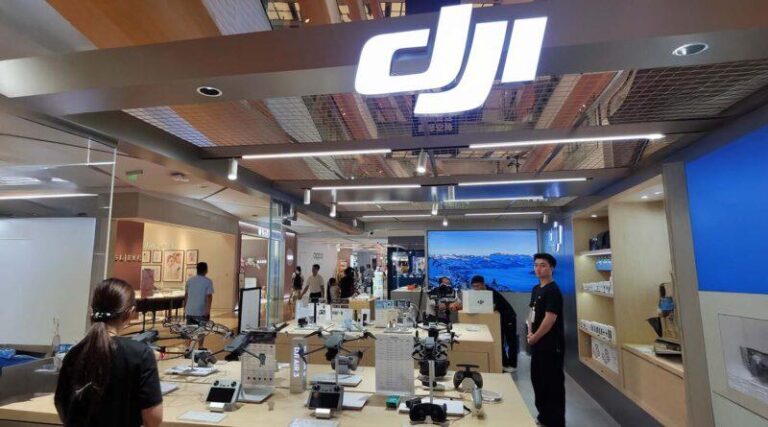Italy’s competition authority has launched an investigation into DJI, the world’s leading drone manufacturer, accusing the company of engaging in price-fixing and restricting imports into the Italian market. The watchdog’s move underscores growing regulatory scrutiny of major tech firms accused of anti-competitive practices. This development marks a significant challenge for DJI as authorities examine whether its pricing strategies have unfairly limited consumer choice and stifled competition in Italy’s rapidly expanding drone sector.
Italian Watchdog Alleges DJI Engaged in Drone Price-Fixing Practices
Italy’s antitrust authority has launched an investigation into allegations that DJI, the world’s leading drone manufacturer, engaged in anti-competitive practices by orchestrating a price-fixing scheme. According to the watchdog, DJI allegedly collaborated with distributors and retailers to manipulate drone prices, preventing the natural market competition from driving costs down. The probe further suggests that the company implemented restrictive measures to limit drone imports, thereby consolidating its market dominance and restricting consumer choice throughout the Italian drone sector.
The authority’s preliminary findings indicate multiple violations including:
- Coordinated pricing controls across various retail outlets
- Contractual restrictions imposed on importers to curb cross-border sales
- Market partitioning tactics preventing lower-priced drones from entering the Italian market
These actions are said to have led to artificially inflated prices impacting both professional and recreational drone users in Italy. The watchdog has hinted at possible sanctions and hefty fines should the allegations be substantiated after a full review. Market analysts are closely watching the situation, noting that such regulatory actions might prompt DJI to reconsider its distribution strategies in Europe.
| Aspect | Allegation | Potential Impact |
|---|---|---|
| Price Coordination | Fixed retail prices among distributors | Higher consumer costs |
| Import Restrictions | Limits on cross-border sales | Reduced competition |
| Market Control | Exclusive contracts deterring rivals | Market monopolization |
Impact of Alleged Price-Fixing on Italian Drone Market and Import Regulations
The Italian Competition Authority has launched an investigation into allegations that DJI, the global leader in drone manufacturing, engaged in price-fixing practices within the Italian market. These claims suggest DJI manipulated retail prices in collaboration with local distributors, potentially creating an unfair competitive landscape that stifles smaller manufacturers and inflates consumer costs. If proven, such activities could lead to hefty fines and stricter regulatory oversight for the drone giant, profoundly impacting market dynamics and product accessibility in Italy.
Beyond enforcement actions, the controversy has heightened scrutiny on drone import regulations, prompting Italian customs and trade officials to tighten controls on electronic devices entering the country. Industry insiders predict the following consequences:
- Increased tariffs and customs checks for drones manufactured outside the European Union;
- Stricter certification requirements for imported drone components to ensure compliance with local standards;
- Potential delays in product availability due to enhanced regulatory procedures.
| Impact Area | Expected Effect | Timeframe |
|---|---|---|
| Retail Pricing | Possible price normalization with increased competition | 6-12 months |
| Import Procedures | Extended customs clearance times | Immediate |
| Market Access | Greater barriers for non-EU drone brands | Ongoing |
Recommendations for Regulators and Consumers in Addressing Drone Industry Anti-Competitive Behavior
Regulators are urged to strengthen oversight mechanisms to ensure transparency and fairness within the drone market. This involves closer scrutiny of pricing strategies and import controls that may unfairly limit competition. Implementing periodic audits and fostering open channels for whistleblowers can help detect and deter anti-competitive practices early. Furthermore, collaborative efforts between European watchdogs can harmonize regulations, preventing companies from exploiting jurisdictional gaps to maintain market dominance.
For consumers, awareness is crucial. Staying informed about market dynamics and reported infractions empowers buyers to make better decisions and demand accountability. Consumers should support alternative brands and seek out independent reviews to avoid inadvertently reinforcing monopolistic tendencies. Practical steps include:
- Researching competitive pricing from diverse sellers before making purchases
- Reporting suspicious price patterns or import restrictions to consumer protection agencies
- Engaging with online forums and advocacy groups focused on fair competition in the drone industry
| Stakeholder | Key Action | Expected Outcome |
|---|---|---|
| Regulators | Enforce anti-price-fixing laws | Increased market fairness |
| Consumers | Diversify brand choices | Stronger competition |
| Industry Groups | Facilitate transparency | Reduced regulatory gaps |
In Conclusion
As the investigation into DJI’s pricing practices unfolds, industry stakeholders and consumers alike will be watching closely to see how the accusations from the Italian watchdog impact the drone market in Europe. With allegations of price-fixing and import restrictions raising serious competition concerns, regulators may take further action that could reshape the dynamics of the industry. DJI’s response and the outcome of this case will likely set important precedents for how global drone manufacturers operate within regulated markets moving forward.




